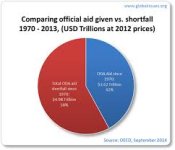Foreign aid has long been a powerful tool in international diplomacy — but should it come with strings attached? This question cuts deep into the ethics, effectiveness, and political motives behind global assistance. While some view conditional aid as a practical way to promote reform and ensure accountability, others argue it undermines sovereignty and can even exacerbate inequality.
Conditional foreign aid typically means that financial or humanitarian support is given only if the recipient nation meets specific requirements — often related to human rights, democratic governance, economic reforms, or anti-corruption measures. Proponents argue this is not only reasonable but necessary. Why should taxpayers from one country fund governments that suppress freedoms, waste resources, or violate international norms?
Supporters claim that conditions promote transparency, encourage democratic reforms, and prevent misuse of aid money. Countries like the U.S. and members of the EU often attach democratic and human rights conditions to ensure the money helps the people, not corrupt regimes. Conditionality can also be used as leverage to push for structural reforms that long-term aid alone might never achieve.
But the opposing side sees a darker picture. Critics argue that conditional aid can be a form of modern-day imperialism — where powerful nations dictate terms to weaker ones, often pursuing their own strategic or economic interests. These conditions can force austerity, privatization, or Western-style reforms that don’t align with the cultural or developmental needs of the recipient nation. It shifts the focus from local ownership to foreign approval.
Furthermore, there's evidence that conditional aid doesn’t always work. Countries may agree to reforms on paper just to receive the money, only to reverse course later. Others may resist entirely, leading to aid withdrawal that hurts civilians more than their governments. The poor, displaced, or hungry don’t care about the politics — they need help.
In reality, the effectiveness of conditional aid depends on how conditions are crafted and enforced. If they are transparent, locally relevant, and tied to real improvements — they can drive progress. But if they serve geopolitical games or economic coercion, they risk undermining trust and global solidarity.
So, should foreign aid be conditional? The answer isn’t a simple yes or no — but it must always be ethical, accountable, and people-centered.
Conditional foreign aid typically means that financial or humanitarian support is given only if the recipient nation meets specific requirements — often related to human rights, democratic governance, economic reforms, or anti-corruption measures. Proponents argue this is not only reasonable but necessary. Why should taxpayers from one country fund governments that suppress freedoms, waste resources, or violate international norms?
Supporters claim that conditions promote transparency, encourage democratic reforms, and prevent misuse of aid money. Countries like the U.S. and members of the EU often attach democratic and human rights conditions to ensure the money helps the people, not corrupt regimes. Conditionality can also be used as leverage to push for structural reforms that long-term aid alone might never achieve.
But the opposing side sees a darker picture. Critics argue that conditional aid can be a form of modern-day imperialism — where powerful nations dictate terms to weaker ones, often pursuing their own strategic or economic interests. These conditions can force austerity, privatization, or Western-style reforms that don’t align with the cultural or developmental needs of the recipient nation. It shifts the focus from local ownership to foreign approval.
Furthermore, there's evidence that conditional aid doesn’t always work. Countries may agree to reforms on paper just to receive the money, only to reverse course later. Others may resist entirely, leading to aid withdrawal that hurts civilians more than their governments. The poor, displaced, or hungry don’t care about the politics — they need help.
In reality, the effectiveness of conditional aid depends on how conditions are crafted and enforced. If they are transparent, locally relevant, and tied to real improvements — they can drive progress. But if they serve geopolitical games or economic coercion, they risk undermining trust and global solidarity.
So, should foreign aid be conditional? The answer isn’t a simple yes or no — but it must always be ethical, accountable, and people-centered.

